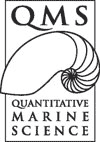
6th European Conference on Ecological Modelling (ECEM)
Trieste , Italy , 27-30th November 2007
Prior to ECEM 07, a workshop on “Biogeochemical processes and fish dynamics in food web models for end-to-end conceptualisation of marine ecosystems. Theory and use of Ecopath with Ecosim” was held with approximately 50 invited participants. Most participants were from Europe and Africa while a handful of participants were from Australia and the US . The aim of the workshop was to explore the possible use of Ecopath-like food web model in integration of biogeochemical processes and fish dynamics. Some useful models and methods were put forward as well as a new version of the Ecopath with Ecosim software that will allow greater integration of biogeochemical processes in trophic ecosystem modelling. However, I found the need for further research was the main factor highlighted during the workshop.
ECEM is run biannually and organised by the International Society of Ecological Modelling. P articular attention was given to themes related to Global Changes, Sustainability and Ecosystem Management and all topics in the area of ecological modelling. Participants were invited from all areas of research, development and application in Ecological Modelling. The theme of the conference was “Challenges for ecological modelling in a changing world: global changes, sustainability and ecosystem-based management”.
Conference topics ranged from ecological modelling techniques to thermodynamic and system theory, and uncertainty analysis. Many of the talks at the conference focussed on reworked Ecopath with Ecosim models or biogeochemical network models with few new techniques being trialled. In addition, few of the talks discussed practical management strategies that could be performed as a result of their analyses.
A small number of qualitative modellers from Italy and Hungary participated in the conference and I was able to make a number of useful contacts. I was interested to see the integration of network models with qualitative modelling as well as investigation into keystone species using non-trophic links in qualitative models. The small number of qualitative modellers provided a refreshing view of ecosystem modelling and received a lot of feedback and interest from the audience. Overall, participation in this workshop and conference showed me that there is still a long way to go before ecosystem based management can be effectively implemented and receive broader acceptance.